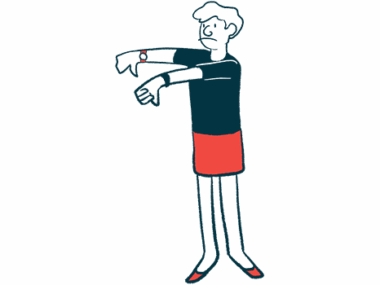KGK Seeks Canada’s Approval for Phase 2a Trial of Psilocybin Microdose
With approval, first in-human trial could launch in early 2023
Written by |

KGK Science is requesting permission from Health Canada to conduct a Phase 2a clinical trial evaluating a microdose of the psychedelic compound psilocybin in people with fragile X syndrome.
This first in-human trial seeks to investigate the safety of this psilocybin microdose, called NM-1001, as well as its effectiveness at easing cognitive and behavioral symptoms in 10 adults with fragile X.
The application is subject to a 30-day review. Should it be approved, the trial is expected to begin in early 2023.
This announcement follows a recent agreement between the company and Nova Mentis Life Science, which is developing NM-1001 for fragile X and other conditions. Under the agreement, KGK Science is responsible for all trial procedures, from designing its protocol and asking for regulatory and ethics approvals, to conducting the study and analyzing its results.
“This is certainly an exciting time for KGK Science and our client Nova Mentis as we await Health Canada’s review of this pioneering Phase IIa psilocybin microdose study,” Najla Guthrie, CEO of KGK and its parent company, Wellbeing Digital Sciences, said in a company press release.
Microdoses of psilocybin may offer benefits for neurological conditions
Psilocybin is the main psychoactive ingredient in hallucinogenic mushrooms. Beyond its recreational use, evidence suggests that small amounts of the compound may have benefits for the brain, easing symptoms of depression, post-traumatic stress disorder, and autism spectrum disorders (ASD), among other neurological conditions.
Nova believes psilocybin has the potential to treat fragile X, which is marked by cognitive problems and behavioral symptoms including depression, anxiety, ASD-like behaviors, and unstable moods.
In the very small doses that would be used in patients — 1.5 mg — psilocybin is expected to have a beneficial influence on brain chemistry without causing noticeable psychoactive effects.
Earlier this year, Nova Mentis announced that administering low doses of psilocybin every other day for two weeks to an animal model of fragile X had beneficial effects on cognitive and behavioral problems, including recognition memory — offering proof-of-concept support for testing in humans.
Nova had been advancing toward the clinical trial application (CTA) all year, announcing in February it would pair with KGK, a contract research organization with experience conducting clinical trials, to advance its portfolio of psilocybin therapies.
Later, after getting approval to ship psilocybin from the U.S. into Canada, Nova Mentis also produced a large supply of pharmaceutical grade oral capsules of the medication, each containing 1.5 mg of psilocybin, that meet all regulatory requirements and are clinical trial-ready.
“The submission of the CTA is a significant milestone in the clinical development of Nova Mentis’ proprietary drug called NM-1001,” said William Rascan, president and CEO of Nova Mentis.
“We are confident that KGK’s extensive experience in high-quality clinical research trials and expert regulatory support in the space will enable us to continue to make considerable progress towards successful treatment of ASD and [fragile X], currently unmet medical needs,” Rascan said.
Late last year, Nova earned orphan drug designation in both the U.S. and Europe for the use of psilocybin as a fragile X treatment. That designation is meant to help speed clinical development of the therapy by offering financial incentives and regulatory support.






